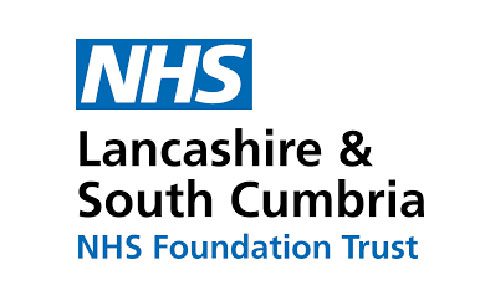Background
Lancashire Care NHS Foundation Trust provides health and wellbeing services for a population of around 1.4 million people and employs 7,000 members of staff across 400+ sites. In 2014, LC embarked upon the Engaging for Excellence Transformation Programme, to provide high quality, people-focused, local, integrated care; to ensure the whole system is safe and effective, with people receiving the right care, at the right time, in the right place, from the right person. Underpinning this approach was the expectation that an Electronic Patient Records (EPR) solution would be delivered to integrate and share information between services and act as an enabler to transformational business change. The clinical and executive stakeholders across the Trust were working closely with GPs and other Community Health support services to enable a ‘holistic’ view of patient care through better integration of a single patient record across the services provided.
EPR Procurement Readiness Assessment
Lancashire Care had undertaken extensive Early Market Engagement (EME) and identified a potential supplier.
BPG were asked to assess the EME and consider challenges with the EPR programme/solution. Our assessment addressed:
- EME process: was it appropriate, balanced and involve sufficient clinical/stakeholder engagement?
- Potential Vendor Identified – were there any biases or unexplored risks in the process?
- Was cost and VfM appropriately assessed?
- Clarity of Roles and Responsibilities that could be contracted for
- Clarity of Requirements to avoid misunderstandings during the procurement process
- Fitness for Purpose of the solution proposed by the vendor(s) meets business objectives
- Possible procurement challenges
- Clinician stakeholder accountability regarding fitness for purpose of the proposed solution
- Transparency of software development and fitness for purpose risks
- Whether the Trust’s expectations for the proposed development were clear and how it could contractually protect itself from misunderstandings.
We interviewed key Trust stakeholders and reviewed: the Early Market Engagement process and outputs, documented expectations/requirements and documented clarification discussions with the preferred vendor, and reviewed the roles and responsibilities in context with the requirements. Our findings indicated that some realignment was necessary in terms of EU procurement compliance and quantification of expectations from the requirements in order that the Trust would be able to contractually rely on the successful provider to achieve a fit for purpose EPR project implementation. We undertook a risk assessment and identified primary gaps in approach and developed a Roadmap to reach Fitness for Purpose.
Gateway 3 Discovery Review
In support of the business case development, we delivered a Gateway 3 Discovery Review (recommended by Monitor), to confirm that the recommended investment decision was appropriate before the contract is placed with a supplier to review and assess how likely the project will be fit for its intended purpose. It provides assurances on the processes used to select a supplier (not the supplier selection decision itself) and whether the process has been well managed; whether the business needs are being met; that both the client and the supplier can implement and manage the proposed solution; and that the necessary processes are in place to achieve a successful outcome after contract award. The review identifies and mitigates risks to the project, its wider strategic outcomes and risks at the local roll-out level, informing all stakeholders including the ICT provider, of the key steps to assure a successful fit-for-purpose and legally compliant procurement and implementation process. Our review covered:
- Business Case & Benefits Plan
- Requirements
- Market engagement/supplier due diligence process
- Key stakeholder Interviews
- Contract terms and procurement process
- Performance management
- Governance
Through a Workshop approach, we presented the findings/recommendations from the review and lessons learned from other EPR projects. We also developed a roadmap of what documentation and behavioural changes needed to be implemented and at what stage in the process to ensure a fit for purpose procurement and project implementation that enables the business outcomes/benefits and establishes a strong ongoing supplier relationship. Following the Gateway 3 Review we supported the Trust with Programme Governance through the remainder of the procurement delivering: Programme Plan, RACI analysis, Actions Log (plus weekly chasing), Programme Definition, Weekly reporting. We also supported the development and delivery of the Contracting and Negotiation Strategy, providing negotiation training to internal teams and supporting the contracting/negotiating through to contract award and mobilisation.
Results of BPG Business Case and Procurement Assurance/Support
BPG found that some expectations were not clear and that vendors had misunderstood requirements.
BPG advised on clarifying expectations and how they would align to the clinical outcomes and financial constraints of the programme. Having clarified expectations and communicating these to the market, the preferred supplier increased its costs by £4m, citing there were expectations it had not realised the Trust had.
Alternative suppliers provided proposals that enabled a fit for purpose solution to be purchased, having had the clarity from the BPG process. The involvement of BPG saved the Trust £4m in unexpected costs that they would not have had sight of until after the contract was awarded.

